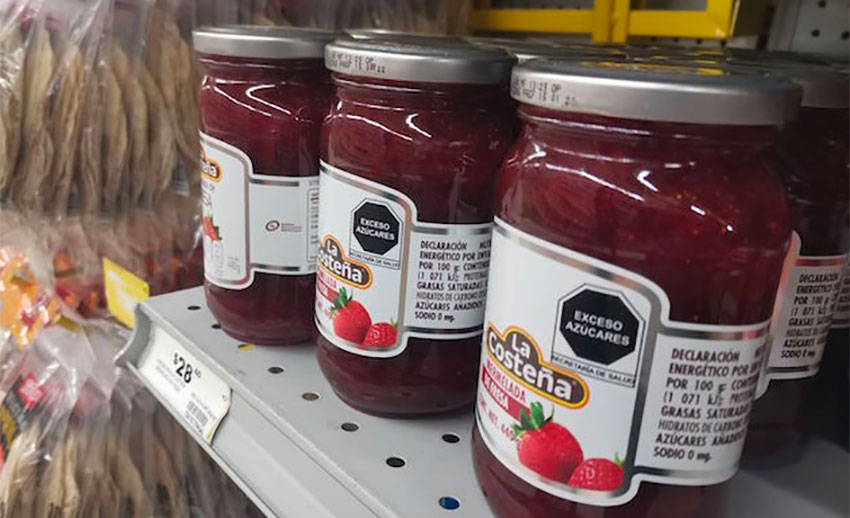New warning labels informing consumers about products that could be unhealthy are starting to arrive in supermarkets across Mexico.
The black octagons are placed on products that are high in saturated fat, trans fat, sugar, sodium or calories and are appearing on cans of soup, evaporated milk, jam and cookies, among other items.
Products containing caffeine and sweeteners will also bear warning labels indicating that they should not be consumed by children, and those that have one or more warnings cannot include children’s characters, animations, cartoons, celebrities, athletes or pets on their packaging.
The warnings are in addition to a labeling system that breaks down the percentages of total sugars, saturated fat, other fats, sodium and calories.
The labels are similar to programs already underway in Chile, Peru and Uruguay.

The government discussed the measure with health organizations and food manufacturers before it was approved by Congress last year.
By law, any products that exceed the government’s health standards must carry the warning labels by October although companies will have a grace period until March 31, 2021, in order to transition to becoming fully compliant.
The warnings are meant to combat obesity and overweight, maladies that affect three out of four Mexicans, as well as diabetes, which was declared an epidemic in the country in 2016 and affects 8.7 million people. Mexico also has one of the highest rates of childhood obesity in the world, a public health problem estimated to represent 3.2% of the country’s gross domestic product.
According to Deputy Health Minister Hugo López-Gatell, 67% of those who have died from the coronavirus in Mexico had chronic conditions such as diabetes, hypertension, obesity or cardiovascular disease, comorbidities associated with the consumption of junk food.
But not everyone is on-side with the new labels, which have met with strong opposition from some sectors of the food industry. Bosco de la Vega Valladolid, head of Mexico’s National Agricultural Council (CNA), said the warnings would only serve to “demonize” food products and negatively affect the economy.
Mexico’s Business Coordination Council (CCE), which includes the CNA and the food and beverage association, issued a statement criticizing the new system after the new regulations were announced.
“The ministries of economy and health agreed to impose a labeling standard that will not solve the health problem that Mexico suffers but, on the contrary, will result in less information being available to consumers,” it said, claiming that authorities “dismissed the opinion and scientific evidence presented by hundreds of organizations and the private sector that participated in the public consultation.”
The European Union, the United States, Costa Rica and Guatemala expressed concern to the World Trade Organization when the measure was introduced last year, stating that “the proposal restricts trade more than necessary,” the WTO reported.
Source: El Universal (sp), Sin Embargo (sp), Entrepreneur (sp)
